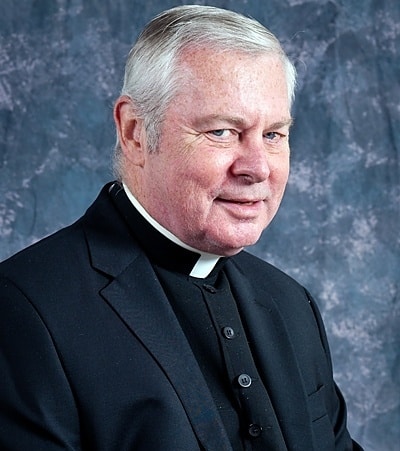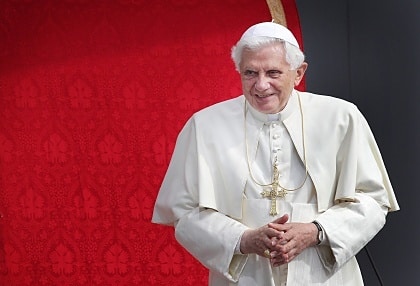February 11, 2013

The Feb. 11 announcement that Pope Benedict XIV will step down at the end of the month was a surprise to the world’s one billion Catholics. The last pope to resign was Pope Celestine V in 1294, said Father Paul Robichaud, CSP, Church historian. This leaves many questions to be resolved, and Father Robichaud addressed some of those queries with Paulist.org
Did Pope Benedict give any previous inclination that he would consider resignation?
He told a German reporter in 2010 that if he felt he was incapable of performing the duties required of the pontiff that he would consider resignation. A lot of people feel that having gone through the last years of Pope John Paul II’s life – and he was so sick – that Pope Benedict didn’t want to go through that. Pope Benedict has done something very, very courageous. The continuance of the papacy is based on the premise that the former pope has died. For Pope Benedict to “renounce the papacy” – the throne of Peter – is a new situation that brings about several interesting questions.
Such as what do you call an ex-pope?
Yes. I assume since he is no longer the pope, he will return to being Cardinal Ratzinger. Do you call him the former pope, the ex-pope or just Cardinal Ratzinger? Also, where will he live? That will be in part his decision and part the decision of his successor. Pope Benedict may want to return to Regensburg (his hometown in Germany) but the new pope might want him to remain in Rome, or vice versa. How difficult will it be for a new pope to have an old pope still around?
Will there be any changes in the procedure of choosing the next pope?
The usual procedure is for the cardinals to come to Rome for the papal funeral, followed by a pre-conclave then the conclave. Now, when will the cardinals come to Rome? Now? Right after the pope resigns on Feb. 28? What will the pre-conclave look like not precluded by a funeral?
Can Pope Benedict vote for the next pope?
Since he is over the age of 80, Pope Benedict is not eligible to vote in the conclave.
Will Pope Benedict address the conclave?
He may choose to address or not to address the conclave. He can certainly influence the conclave prior to its opening by passing on names of nominees he would like considered or discussing the qualities his successor should have. That would have a huge influence. Or he may say nothing at all. The only thing that is clear at this point is that Cardinal Ratzinger was pope between April 19, 2005 and Feb. 28, 2013.
What effect does a new pope have on the Church?
Since the pope is so influential as the person of ultimate authority and unity in the Church – the person who holds the world’s one billion Catholics together – any time of transition in the papacy is a profound moment for the Church. Every time there is a new pope, there is an opportunity for change. People who want to see changes in the Church see that as coming from the leadership, namely the pope. Will the new pope make changes to adapt the church to a post-modern world?
How has modern technology and culture affected the papacy and the Church?
It is funny, because in the 19th century, people thought all Catholics took their “marching orders” from the pope. In fact, it took so long for the “marching orders” to get back and forth that the pope didn’t really have a lot of influence on the Church in the United States. Today, the pope has instantaneous communication. He can tweet, email, has a Vatican Web site, television and radio. The advances in communication have helped to centralized the role of the Vatican and of the pope in the Church.
Father Paul Robichaud, CSP, is a Church historian and postulator for the cause for canonication of the Paulist fonder, Servant of God Father Isaac T. Hecker. His office is at St. Paul’s College in Washington, D.C.
